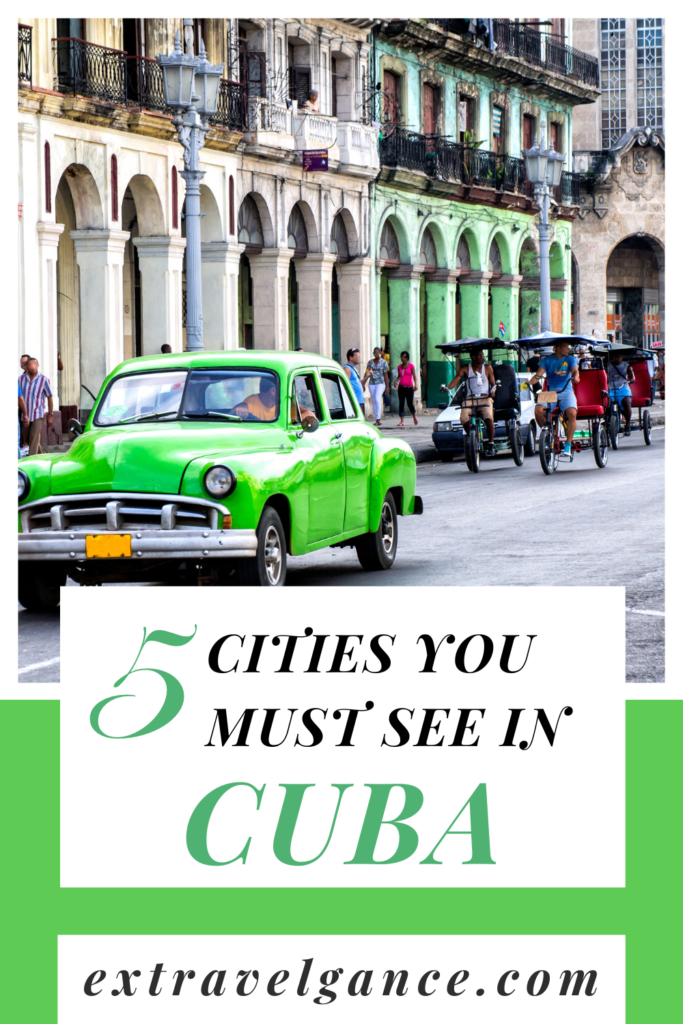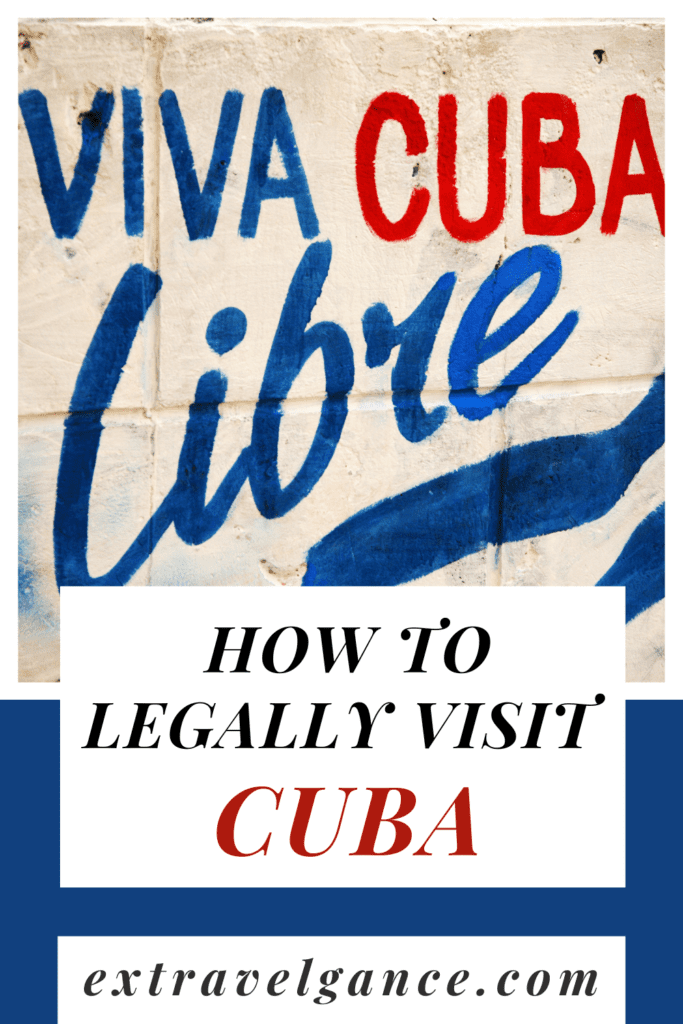
Cuba is one of the few countries in the world that U.S. citizens have been denied access to. There are a lot of places the State Department recommends not visiting. But for years, Cuba was the only one we couldn’t legally visit. U.S. citizens can now legally visit Cuba if they meet one of 12 authorized categories. This sounds hard, but it really isn’t if you plan accordingly.
U.S. citizens fall into the trap of thinking that tourism doesn’t exist in Cuba. After all, if we can’t visit, then surely nobody else is there either – right? This is a total myth. People from all over the world visit Cuba every year – and always have!
A Little Background Info
The U.S. helped Cuba break free of Spanish rule in 1889. Then, Cuba became a U.S. protectorate until 1902. But the Cuban government was never stable for long. Repeated uprisings and coups plagued the country.
U.S. businesses invested heavily in the country while U.S. mobsters made the island their money-laundering playground. American tourism flourished and organized crime thrived during Prohibition. In 1933, the U.S. backed a military coup led by Sgt. Fulgencio Batista. Batista eventually deposed the Cuban president, abandoned the constitution, and halted elections.
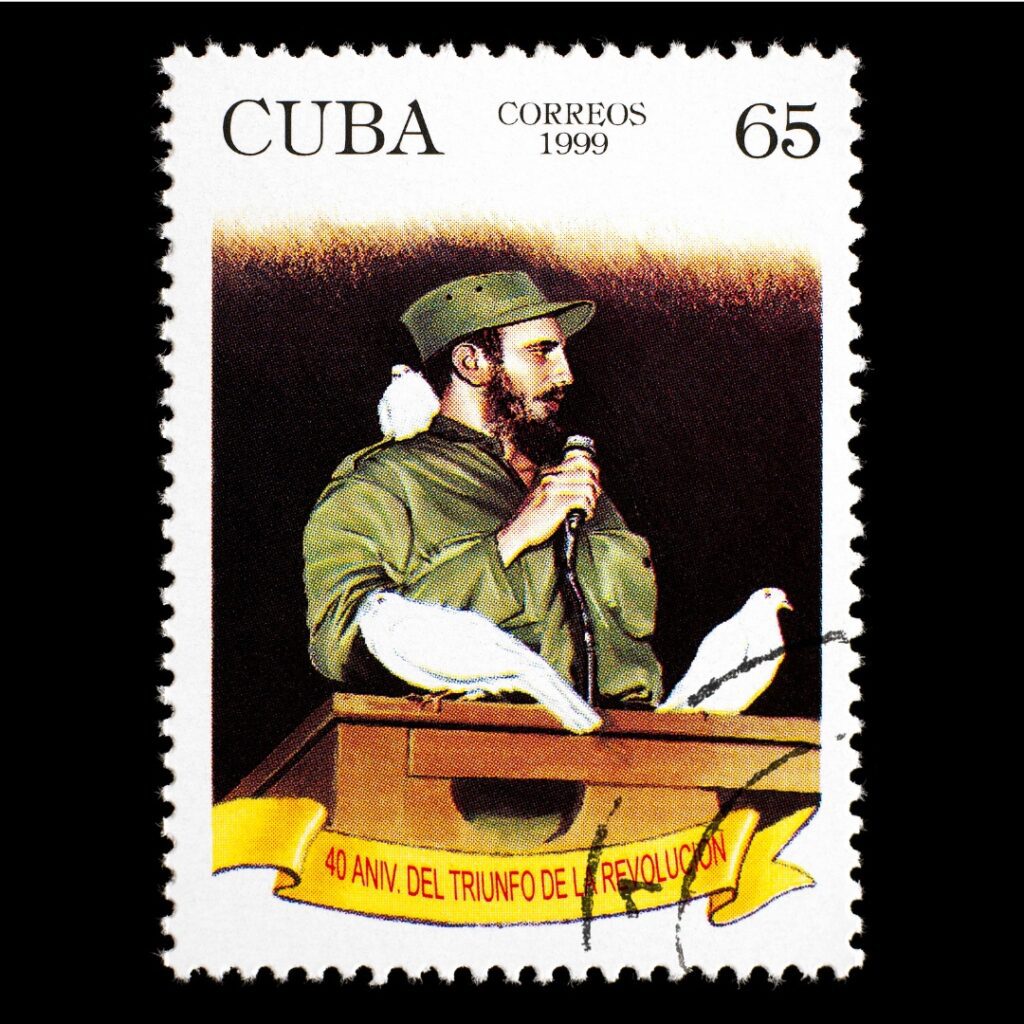
Revolution
In 1953, Fidel Castro led his first attempt to overthrow the Batista government. It failed and Castro was imprisoned. But Castro didn’t give up, and the Batista government collapsed on January 1, 1959. Castro denounced “Yankee imperialism” and developed ties with the Soviet Union. This led to an U.S. economic embargo and ending of diplomatic relations. It became virtually impossible for U.S. citizens to legally visit Cuba.
Cuba’s dependence on the Soviet Union increased. In 1961, the U.S. backed an attempt led by Cuban exiles to depose Castro known as The Bay of Pigs. The U.S. discovered that the Soviet Union stationed nuclear missiles on the island in 1962. The resulting 13-day standoff is now known as the Cuban Missile Crisis.
Cuba Under Castro
Many Cubans still sing the praises of Fidel Castro. He abolished legal discrimination, provided full employment, advanced education and health care, and expanded electricity to the countryside. Unfortunately, he also ended the free press, abolished private businesses, limited land ownership, and jailed thousands. In addition, he made himself President and refused to conduct elections.
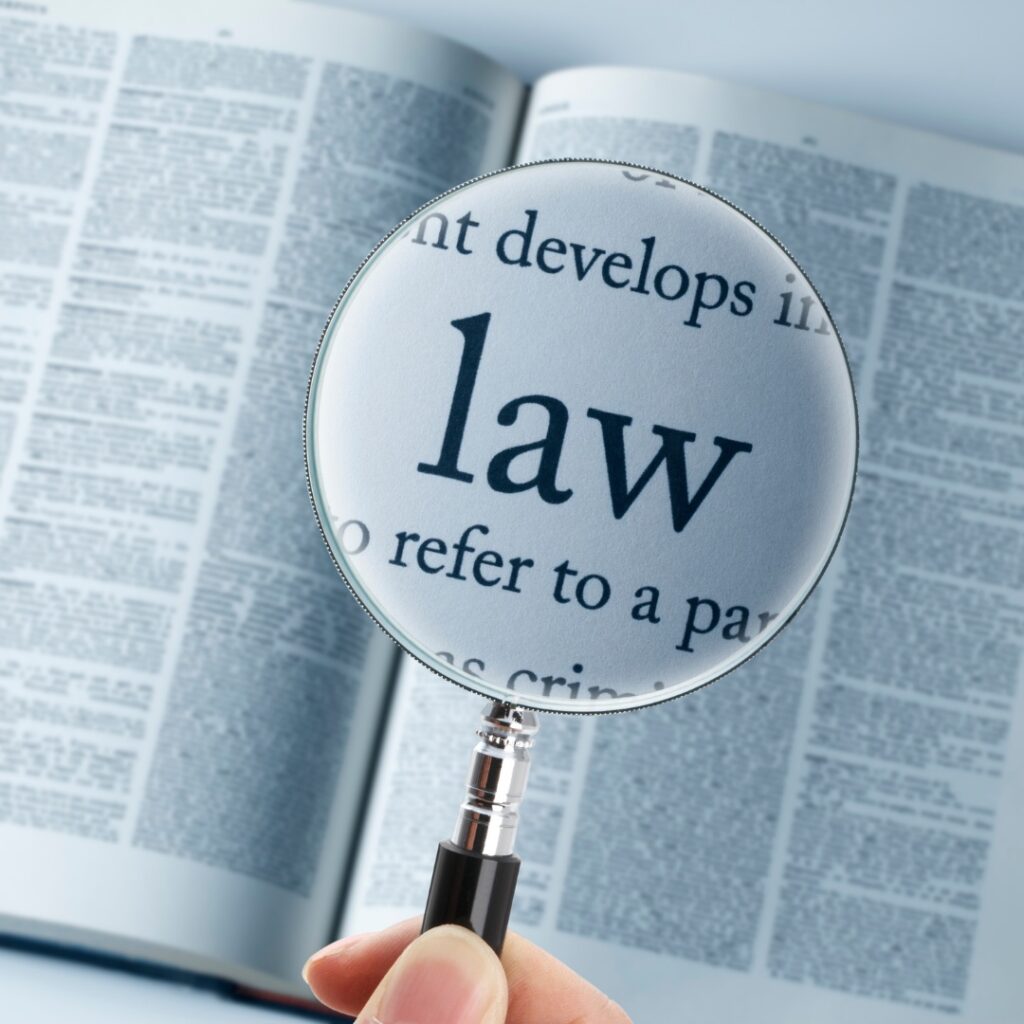
The 411 for U.S. Citizens to Legally Visit Cuba
A lot has happened to make it easier for U.S. citizens to legally visit Cuba. I could go into all the details, but what really matters is that it is now totally possible.
U.S. citizens (and anyone else physically present in the U.S.) traveling to Cuba may do so by a general license. According to the Code of Federal Regulations §515.560, there are 12 categories for a general license. Most people wishing to visit Cuba utilize Category 8: Support for the Cuban People.
Categories for a General License to Travel to Cuba:
1. Family visits (see § 515.561)
2. Official business of the U.S. government, foreign governments, and certain intergovernmental organizations (see § 515.562)
3. Journalistic activity (see § 515.563)
4. Professional research and professional meetings (see § 515.564)
5. Educational activities (see § 515.565)
6. Religious activities (see § 515.566)
7. Public performances, clinics, workshops, athletic and other competitions, and exhibitions (see § 515.567)
8. Support for the Cuban people (see § 515.574)
9. Humanitarian projects (see § 515.575)
10. Activities of private foundations or research or educational institutes (see § 515.576)
11. Exportation, importation, or transmission of information or informational materials (see § 515.545)
12. Certain export transactions that may be considered for authorization under existing Department of Commerce regulations and guidelines (see § 515.533 and § 515.559)
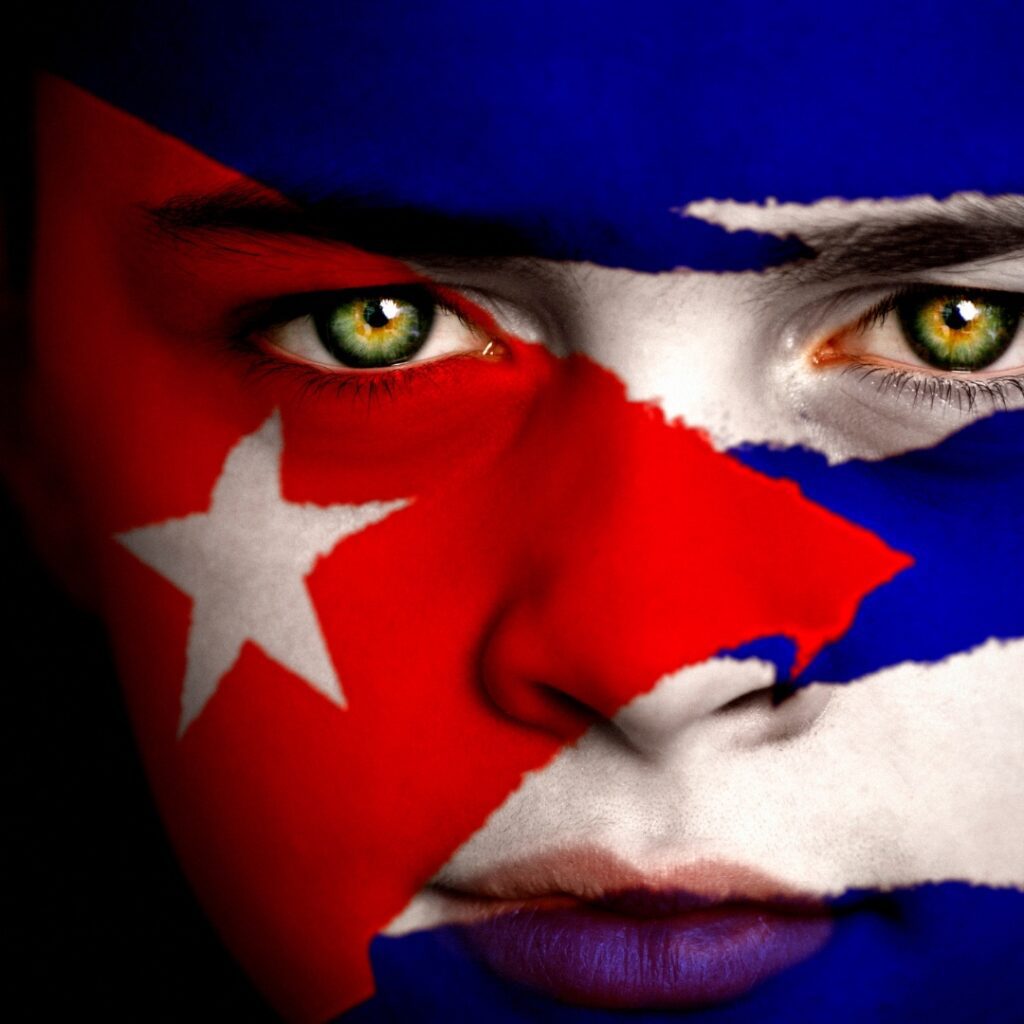
Category 8 – Support for the Cuban People
The Support for the Cuban People category is designed for travelers to do just that – support the Cuban people! Basically, you can’t just go to Cuba to tour Old Havana and soak up the sun. You must fulfill a full-time schedule (think about your work week) doing activities that enhance contact with the Cuban people, support civil society, or promote independence from the Cuban government. The activities must also result in meaningful interaction with individuals in Cuba. That said, you can still see the sites and lounge on the beach to your heart’s content – during your free time.
Trust me – this isn’t hard. You don’t have to volunteer with a non-governmental organization to build community centers for the underserved elderly citizens of Cuba. You can fulfill these requirements by supporting independently owned businesses and engaging in meaningful interaction and dialogue with Cuban people. Basically, the U.S. government wants us to do things that help Cuban people become independent. They do NOT want us to give our hard-earned cash to the hotels and other businesses that are primarily owned by the Cuban government. Most Cuban hotels and businesses are owned by the government.
For Example
If you were to travel to Cuba, stay in a Casa Particular (private residence) and have breakfast with the host to learn about Cuban culture. Then you spend the remainder of your full-time schedule enjoying other meals at paledares (privately-owned restaurants) and shopping at privately-owned businesses run by self-employed Cubans. In addition, while eating and shopping, you engage in meaningful conversation with individuals and support Cuban entrepreneurs launching a business. Your schedule promotes independent activity intended to strengthen civil society in Cuba. Plus, you will NOT lodge, or pay for lodging, at any property on the Cuba Prohibited Accommodation List as stipulated in §515.210. Then your travel meets the qualification for the Support of the Cuban People General License. In your free time, you may visit historical, cultural, and recreational sites in the country.
Getting the General License to Legally Visit Cuba
So, weird as it sounds, there isn’t actually a physical general license document. It is all run on the honor system. That said, I recommend writing a brief statement you might use if you are actually questioned about your qualifications for this general license. Attach it to the top of your daily itinerary (with hotel and dining locations specified). You are also required to save all receipts for a minimum of 5 years in case the U.S. Department of the Treasury actually requests them. Throw all this in a folder and stick it where you can find it (perhaps with your income tax return for that year).
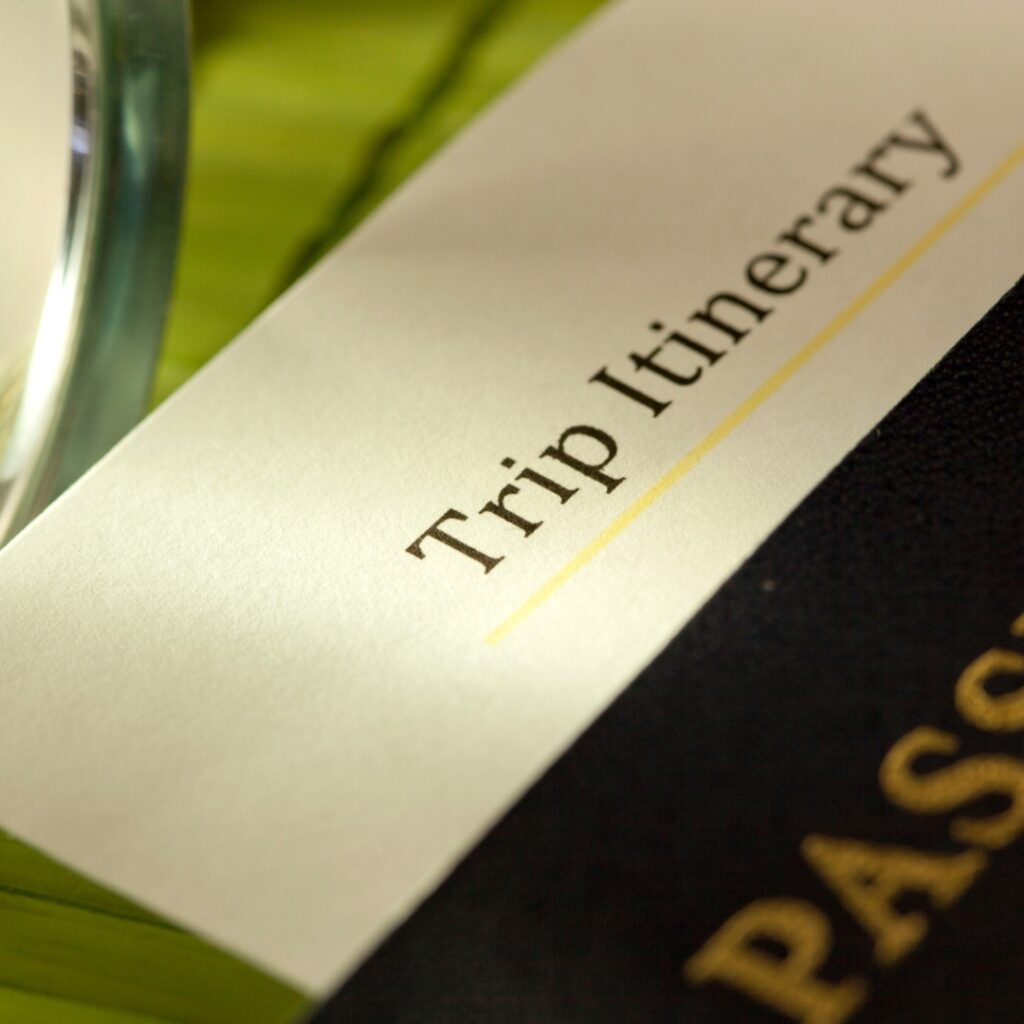
Resources to Help Build a Qualifying Itinerary
- Use Airbnb! Airbnb can be used to book more than just a room and all hosts are independent business owners! Use this site to book:
- Casa Particulare – look for one that includes breakfast with the host
- Cooking Classes and Culinary Tours
- Classic Car Tours
- City Tours
- Agricultural Tours
- Paddling, Horseback Riding, and Hiking Excursions
- Tours By Locals – these guides are self-employed so just engaging with them supports your full-time itinerary. They can create custom-made experiences and you can hire them for a day, a week, or a month.
- Hire a tour company to put together a full itinerary. This option isn’t quite as personal, but there are companies who specialize in building Support for the Cuban People tours.
An advantage of using the resources above is that you can pay in advance. U.S. credit and debit cards do not work in Cuba, so this is a real plus (more on money below).
What Documents Do I Need To Legally Visit Cuba?
- U.S. Passport with at least 6 months remaining and two blank pages
- Cuban Tourist Card – see below
- Evidence of Sufficient Funds for Minimum Financial Needs (cash, receipts for pre-paid reservations, etc.)
- Proof of Non-U.S. Health Insurance – typically included in the airline ticket but can be purchased in the airport upon arrival
- COVID-19 Vaccination Card
How Do I Get a Cuban Tourist Card
There are two types of Cuban Tourist Cards:
- Pink Tourist Card – for anyone arriving on a flight originating in the U.S. (no matter their nationality). Cost = $50-$100
- Green Tourist Card – for anyone arriving on a flight originating outside the U.S. (even if they are a U.S. citizen). Cost = $20-$50
Where To Apply
- If in the U.S. – DO NOT GO THROUGH THE EMBASSY! Due to U.S./Cuba relations, the embassy is not terribly helpful.
- Some airlines (American, Delta, and JetBlue) facilitate getting the tourist card. This is the most affordable and simple way to get it.
- Online services such as EasyToursitCard.com are a bit more pricey but worth it if you can’t get it through your airline.
- You can get it at the airport on arrival – but why on earth would you do this? I have never had a problem waiting until arrival in other countries, but given the U.S. relationship with Cuba, this seems unwise.
Cuban-Born U.S. Citizens
Cuba does not recognize the U.S. nationality of Cuban-born U.S. citizens. Therefore, Cuban dual nationals must enter and depart Cuba using a Cuban passport. Also, Cuban-born U.S. citizens may be subject to additional restrictions and obligations.

About Money
The biggest obstacle for U.S. citizens traveling to Cuba is money. U.S. credit and debit cards do not work in Cuba. Also, the Cuban Central Bank announced new restrictions on the use and/or conversion of U.S. dollars. U.S. dollars in cash cannot be converted to local currency nor be accepted for payment. I recommend converting your US dollars to Euros prior to leaving the states. Euros are easily converted and not a hassle to deal with if you return home with some.
Be sure to exchange any Cuban pesos back to Euros (or whatever currency you brought with you). You cannot convert those Cuban pesos to anything else once you arrive back in the states. Also keep in mind, currency exchange houses at the Cuba airports are currently closed. So, stop by a bank or other exchange house before you head to the airport!
One Last Word About Money
The U.S. prohibits direct financial transactions with certain entities and sub-entities under the control of, or acting for or on behalf of, the Cuban government. Be sure to check the Department of State’s Cuba Restricted List to make sure your accommodation, meal, tour, and shopping providers are not listed. For more information, visit the OFAC’s Cuba Sanctions website.
Other Things To Know About Cuba
- Individuals with mobility issues will find accessibility difficult. Few facilities are accessible and most roads and sidewalks are poorly maintained.
- Some HIV/AIDS entry restrictions exist for visitors to Cuba. Please verify the latest information with the Embassy of Cuba before you travel.
There are so many beautiful places to visit in Cuba! Check out Top 5 Cities You Must Absolutely Must Visit in Cuba and One Incredible Night in Havana to jumpstart your travel dreams.
So, when do you plan to legally visit Cuba?
Tell us what you think below in the comments. You can also contact us and follow us on Facebook, Instagram and Pinterest so you never miss a post!


